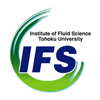|
Invited Talks
 |
Professor Jarke van Wijk
Technische Universiteit Eindhoven |
| title: |
Visualization of Flow Data with Texture |
| abstract: |
Fluid flow data sets are traditionally visualized via arrows or streamlines. Often this is effective, but both techniques have their limitations. The domain is sampled sparsely, features such as saddle points are not clearly visible, and the images produced look artificial. Since the early nineties, researchers in data visualization have studied alternative approaches, including the use of texture. In the real world, dense, moving textures that are aligned with the flow provide a very clear depiction of fluid flow. The challenge is to generate such textures for arbitrary fluid flow data sets.
An overview of developments, methods and approaches in this area is given, where work of the author is presented in some more detail. The first method for the visualization of fluid flow via texture was Spot Noise (1991). With Line Integral Convolution (1993) a much higher image quality could be obtained. Much work has been spent since then on improving the image quality and efficiency of the texture synthesis process. Recent methods, such as Image Based Flow Visualization (2002), take advantage of the graphics hardware and can be used to visualize fluid flow with moving textures in real time.
|
| biography: |
Jarke van Wijk obtained a MSc degree in Industrial Design Engineering in 1982 and a PhD degree in computer science in 1986, both with honors. He has worked at a software company and at the Netherlands Energy Research Foundation ECN before he joined the Technische Universiteit Eindhoven in 1998, where he became a full professor in Visualization in 2001. He is a member of IEEE, ACM SIGGRAPH, and Eurographics. He has been paper cochair for IEEE Visualization in 2003 and 2004, and is paper cochair for IEEE InfoVis in 2006. His main research interests are information visualization and flow visualization, both with a focus on the development of new visual representations.
http://www.win.tue.nl/~vanwijk
|
 |
Professor Kwan-Liu Ma
University of California, Davis |
| title: |
Ultra-Scale Visualization |
| abstract: |
Large parallel computing systems give scientists the power to model and visualize physical phenomena and chemical processes at a stunning degree of precision and sophistication leading to profound levels of insight and understanding. I will introduce new techniques and concepts promising us to visualize and explore terabyte-scale data to its full extent, and show the impact of these new technologies on a wide range of science endeavors from turbulent combustion to fusion, from meteorology to geophysics, from particle physics to astrophysics. |
| biography: |
Kwan-Liu Ma is a professor of computer science at the University of California at Davis. He received his PhD in computer science from the University of Utah in 1993. Before he joined UC Davis he was with ICASE/NASA LaRC as a research scientist. Professor Ma's research spans the fields of visualization, computer graphics, and high-performance computing. In 2000, he received the Presidential Early Career Award for Scientists and Engineers (PECASE) for his work in large data visualization. He has been actively participating in several national-scale research programs sponsored by the US National Science Foundation (NSF) and Department of Energy. Presently, his is leading a team of 12 PhD students studying the problems of visualizing terascale scientific simulations, cyber security, homeland secrurity, social networks, etc., as well as developing new visualization methodologies, infrastructures, and interfaces. Over the past year, he has organized a workshop on Visualization for Computer Security (VizSEC 2005) and a workshop on Time-Varying Data Visualization, both of which were sponsored by NSF. More information about Professor Ma's work can be found at http://www.cs.ucdavis.edu/~ma/. |
last update : March 15, 2006
|





